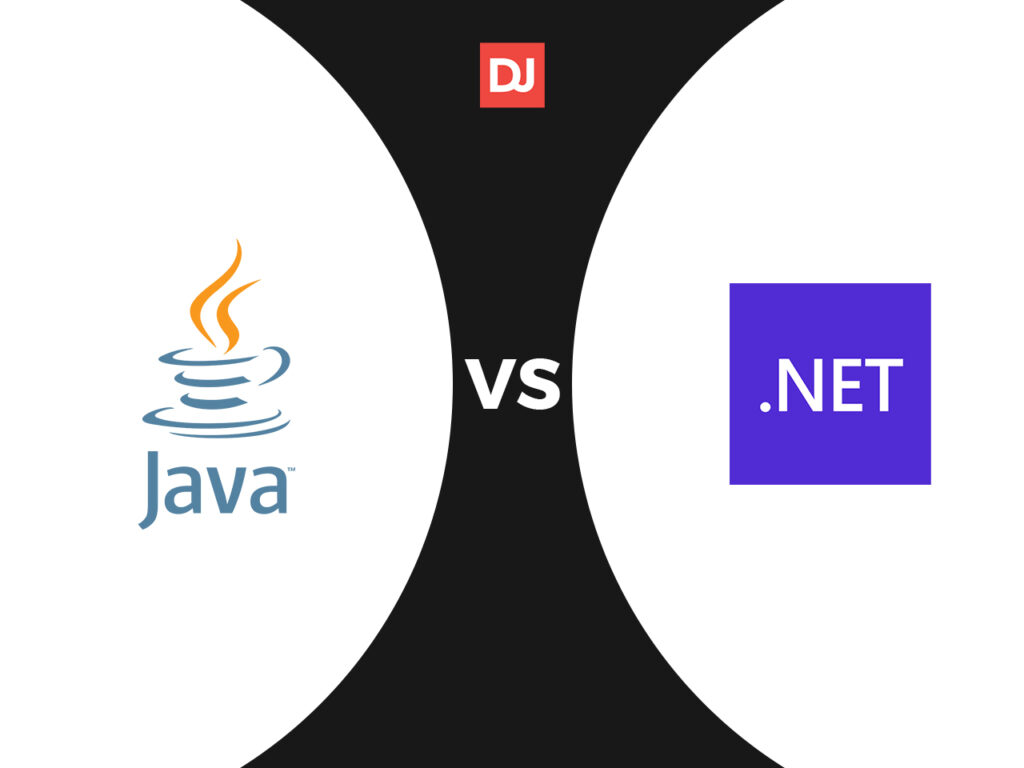Both Java and C# occupy a solid position in the world of back-end development, cloud apps, Windows client applications, and big data processing among many areas of modern programming. However, despite the two languages having similar syntax, their underlying frameworks and capabilities lead them down distinct paths, each with its advantages and disadvantages.
Recent trends indicate a subtle shift in their popularity dynamics. As per the TIOBE Index of October 2023, Java witnessed a decline of 3.92%, whereas C# saw a rise of 3.29% among all programming languages, reflecting an evolving preference among the developer community.
While Java is typically favored for mobile applications, multi-user utility programs, embedded development, and IoT-based systems, C# shines in crafting server (web) multi-user applications, complex software solutions with engaging graphical interfaces, and computer games. However, a thorough examination of their differences is crucial before making any conclusions on which language should you use for your next project.
In this guide, we’ll explore the features, performance, pros, and cons of both Java and C#, highlighting the differences between them. comparison between Java and C# will help you make informed decisions whether you’re hiring, learning, or starting a new project.
First, let’s start with Java.
What is JAVA?
Java was founded in 1995. ‘Write once Run Anywhere’ is its motto that makes Java an independent language platform. It is a versatile and widely-used programming language known for its object-oriented structure, and use in a variety of applications from web development to mobile and enterprise systems
Java’s Features:
- Easy to learn and simple syntax.
- Java follows OOP (object-oriented programming) concepts such as inheritance, abstraction, polymorphism, and encapsulation.
- It offers Exception Handling along with Garbage Collector.
- Java is secure, and its features are capable of developing a temper-free system that is virus-free.
- With the help of JRE (Java Runtime Environment), Java allows its applications to run on any platform by using its WORA functionality.
- Java uses a just-in-time compiler to execute high-performance coding.
- Multithreading in Java uses the same memory and other resources to execute multiple threads simultaneously to design a program to perform several tasks all at once.
- Java is well-distributed as it designs programs to run on computer networks.
- Unlike other languages, Java’s compiler produces bytecodes that are independent of the computer’s architecture.
Pros & Cons of Java
| Pros | Cons |
| Java gives detailed documentation. | In Java, the JIT compiler makes the program slow. |
| A large number of skilled developers are available in Java. | Java requires high memory and processing requirements so, the hardware of maintaining the Java program is high. |
| Java allows the development of standard programs. | In Java, there is no support for low-level programming constructs like pointers. |
| Developing reusable code. | Java doesn’t provide functions like Delete or Free, so directly, users have no control over garbage collection. |
| Java offers a multi-threaded environment and gives high performance. | |
| Java provides a massive array of 3rd party libraries. |
What is C#?
Microsoft developed C#, also known as C-sharp, in 2000. It is object-oriented, component-oriented, lexically, scoped, generic, and a strongly typed programming language.
C# provides modern features and simple codes, making it a real game-changer. This language keeps on updating from time to time which allows for numerous integrations and contemporary elements.
C#’s Features:
- C# is a part of Microsoft Visual Studio.
- This software is simple as it has no pointers, no operators like “::” or “->,” primitive types of varying ranges.
- C# has good memory management and an automatic garbage collector.
- C# does not need any explicit code.
- Modern features are part of C# has it is powerful, robust, and scalable per the contemporary trends.
- C# is safe to use. With the compiler’s help, it is possible to automatically initialize reference types to null and value types to zero.
- It follows OOP concepts such as inheritance, abstraction, polymorphism, encapsulation.
- C# allows the use of VB NET components
- It has native support for window-based and COM-supported applications.
Pros & Cons of C#
| Pros | Cons |
| It gives support to generics and lambda. | C# has poor GUI. |
| It has (LINQ) Language-Integrated Query. | C# is an integral part of the .NET framework, so the application must be window-based. |
| Secure extension methods for language. | C# requires upfront purchase because the software is proprietary. |
| Good memory management. | Less flexible because most of the time, it depends on the .NET framework. |
| The best class Cross-platform support. | |
| C# Offers Backward compatibility. |
C# vs. Java: Main Differences
Both C# and Java came into being by keeping the C and C++ language in view as they have a similar syntax. C# uses CLR (Common Language Runtime), whereas Java uses JRE (Java Runtime Environment). It is also object-oriented, functional, strongly typed, and component-oriented, while Java is only object-oriented.
C# supports operator overloading for multiple operators. Java still doesn’t support operator overloading and pointers. C# can support leads only in unsafe mode (it is not inherently dangerous, just the code not verified by CLR). C# arrays have the specialization of System, whereas Java arrays have the occupation of Objects.
Here is how Java and C# are different from one another on some key parameters:
C# vs. Java: Performance
Good performance was the motive behind the launch of C#. It is well-known that C# uses a Just-in-time compiler, which usually loads less on the CPU and responds quickly.
Java also provides high performance but it uses a lot of memory usage. Due to this reason, C# is more efficient than Java.
Winner: C#
C# vs. Java: Syntax
Because both C# and Java follow after C and C++, they share a similar syntax. Object-oriented is the feature derived from C++; that is why it is in both of these languages.
They also share similar characteristics like Garbage Collector and generating an intermediate language code.
On the other hand, there are some differences as well. One popular one is that C# developers can use properties whereas Java needs get/set methods instead of properties. Another one is that Java has built-in annotation processing which is absent in C#.
C# vs. Java: Web Development
The question of whether you should go for C# or Java for Web development depends on what kind of application you wish to develop.
When it comes to games, C# is the best choice. You can use it to develop Windows applications, cloud-based applications, enterprise software, and more. Companies like Microsoft, Alibaba, Stack Overflow, and Intuit use C#.
The Java programming language is more flexible than C#. Apps that use Java are mostly Android apps, data center apps, and cloud-based apps.
Google, Netflix, Airbnb, Instagram, Amazon use Java for web development purposes.
So, in the web development context, none of them is inferior or superior to the other.
Winner: Tie
C# vs. Java: Versatility
Versatility is a feature developers are continually looking for because it is what makes software worth the purchase.
Java is used for complicated applications like:
- Java is used in Web applications
- In scientific applications and software
- Used to make Android apps
- In Data Centers
- Java supports cloud-based applications.
On the other side, C# is lacking behind Java because it uses extensions. Moreover, it is not optimized for web development. Still, if you are going to use it for in-game growth and Microsoft development, it is a good option. Here are a few applications that use C#:
- Use in Windows applications
- Specialized in video games
- Use to make Web applications
- Enterprise software
- Also, used in Cloud-based applications
Winner: Java
C# vs. Java: Security
Java comes with solid security. Due to its statistical typesetting, it minimizes type-related errors. Automatic code verification of Java makes sure to keep it right before its execution. However, Java is a little helpless when it comes to integrated libraries and applications.
On the other side, C# is vulnerable to many threats, especially SQL and CMD injections. Few functions of C#, in some way, are the reasons behind these security failures. It doesn’t mean that C# is failing to protect your system. It has excellent protection too, but it lacks.
Winner: Java

Related content: Discover the main differences between Java and .NET in this guide.
C# vs. Java: Speed of Development
The first purpose of C# was to make the Windows operating system the best, and NET Core and .NET 5 have shown the best results. Moreover, C# supports the reuse of code which is something awe-inspiring.
On the other hand, Java has a significant advantage in the cost of development due to its syntax. Java’s syntax is independent of IDE and any compilers, and it behaves the same on any computing platform.
It is fair to credit both programming languages for their development speed because a good team of web developers who know their programming language inside out is essential.
Winner: Tie
C# vs. Java: Microservices
Microservices Architect is a methodology used in development to break down a simple application into multiple parts. Each part is capable of performing a unique function on its own.
Java offers the most reliable services when it comes to Microservices. Java can make complicated applications because it gives more value to readability which makes it a good option. Moreover, Java compilers generate bytecodes that are independent of computer architects.
On the other hand, C# has Visual Studio and Mono Develop to provide microservices. C# models are more extensible and have lightweight apps, which makes them a good option but still lag behind Java in terms of reliability.
Winner: Java
C# & Java Examples
Java has remarkable open-source tools and has scalability and the ability to run very efficiently and anywhere. That is why many top companies in the world use it in their tech stack such as:
- Airbnb
- Netflix
- Uber
- Spotify
- Amazon
- Business applications
- CashApp
- Applications for gaming
- Science Applications
- Data-driven technologies
- Software for Business
On the other hand, C# is also used by many popular companies due to its versatility and dynamic, object-oriented ability. Some of the companies that use C# in their tech stack are:
- Windows Microsoft
- Intuit
- XML for Windows Installer
- Paint.NET
- Alibaba
- ViaVarejo
- Open Dental
- Delivery Hero
- Microsoft Visual Studio
- FlashDevelop
- Stack Overflow
- OpenRA
- KeePass
- Banshee
- NMath
- Accenture
- Hepsiburada
C# vs. Java: Who Wins?
Hope this guide on a detailed comparison of Java Vs. C# has given you a better understanding of both languages. Before making a choice of language and hiring its developer, it is critical to assess your project requirements.
Each of them has different yet unique aspects to offer. At the same time, it is not fair to say any of them is the best because both are winning and lacking some qualities. It is better to find what suits the best for your development needs and our team will help you find the expert developer for both C# and Java!




